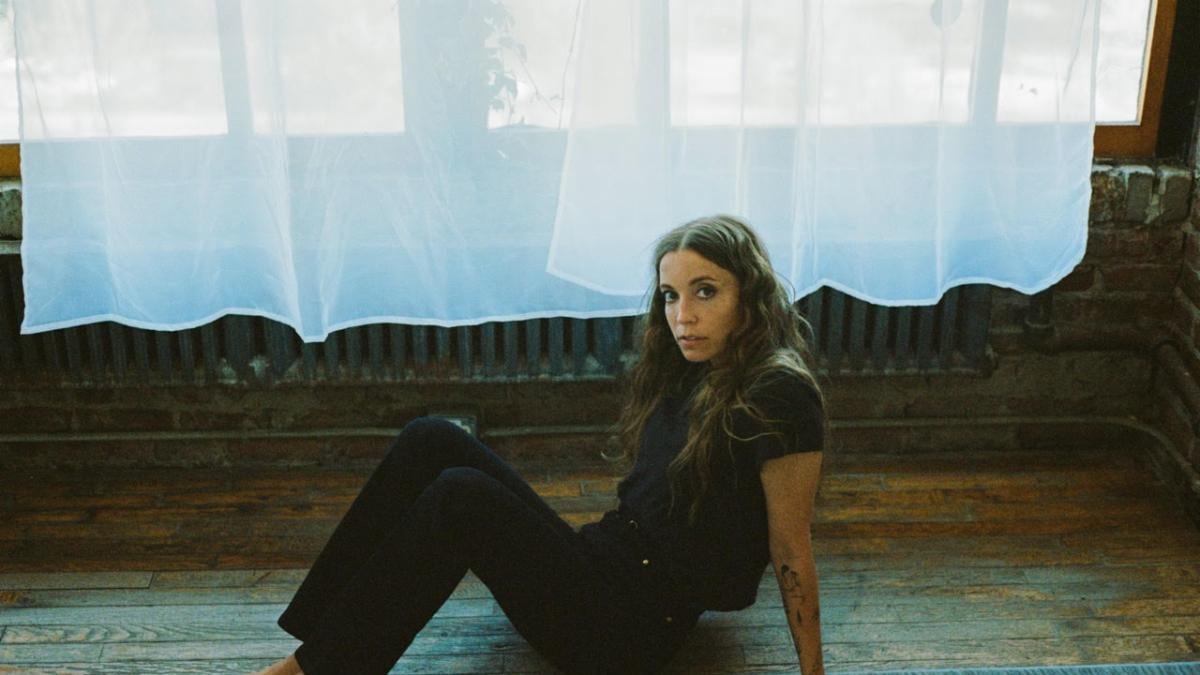As LP Giobbi, Eugene-born producer Leah Chisholm makes anthemic dance music somewhere between the “diva house” that blasted out of gay clubs in the ‘90s and the smoother side of the 2010s EDM boom. A pianist trained in both classical and jazz music, she frequently accompanies herself on keys during performances, playing the triumphant chords and stabs that define her music live onstage.
It might be surprising to learn, then, that Chisholm grew up in a family of Deadheads.
“I really thought the only band that existed was the Grateful Dead because it’s all we listened to in our house,” Giobbi, 37, says. “Jerry [Garcia]’s voice was like an uncle’s voice.”
Yet anyone even casually familiar with the Dead and electronic dance music can see the similarities between the two: marathon sets with seamless transitions, a fan culture centered on live performances (and, often, illegal substances), the satisfying guarantee you’ll never hear the same set twice.
A brief snippet of Chisholm singing one of her favorite Dead songs, “Brokedown Palace,” closes her sophomore album, Dotr, which came out on Oct. 18. It’s the first time she’s ever sung on record, something she previously avoided doing on principle.
“There’s still so few female producers that oftentimes when I go into a session with a new person, they assume I’m the singer because I’m a woman,” she says. “I intentionally don’t sing to make that clear, but this felt very personal to me.”
“Brokedown Palace” is a song about longing for home, which Chisholm connected to during the “whirlwind” of last year. “I’ve always wanted this great, big, beautiful life, and I’m grateful for that,” says Chisholm, who now lives in Austin, Texas. “But it’s kind of overwhelming, and I really do miss home.”
Though she’s been DJing since 2016 (and previously was in a short-lived all-female electronic band formed by Daft Punk producer Peter Franco), 2023 was Chisholm’s breakout year. Following the release of her debut album, Light Places, in May of that year, she won Producer of the Year in DJ Mag, contributed a remix ofTaylor Swift’s hit “Cruel Summer” to Swift’s The Cruelest Summer compilation, and scored a co-sign from legendary U.K. dance label Ninja Tune, which released Dotr through its Counter Records subsidiary.
Named for the way Chisholm would sign letters to her parents as a child, Dotr is imbued with references to her past and upbringing, not least through voicemails with close friends and loved ones that act as interludes between the dance tracks. Among those honored on the album are three close mentors she lost within a matter of weeks last year: family friend and musician Suse Millemann, her mother-in-law, Patricia Lynn, and her piano teacher, Carolyn Horn.
“I’m always sort of working towards an album,” Chisholm says. “I started having an inkling that the theme of this album will be honoring the people that made me who I am. And I lost three of those people within a month of each other last year.”
Dotr is a deeply personal project, but it’s easy to imagine audiences connecting with it on a large scale: These are the kind of songs prone to inspire big-grin happy-sad euphoria on the dance floor. It’s no surprise Chisholm is a fan of the great German producer DJ Koze, known for his tear-jerking vocal manipulations and psychedelic, heavily filtered textures.
The music is as influenced by personal concerns as by practical ones. Giobbi is locked into a relentless touring schedule, playing upwards of 300 shows a year, and she often finds herself crafting tracks in consideration of where they might fit into her DJ set.
“I would say that the more I DJ, the better a producer I become,” she says. “I’m learning night after night what’s working on a dance floor, what feels good, what bass frequencies seem to be hitting harder.”
As I speak to Chisholm via Zoom, she’s about to play a private party for a cadre of wealthy tech people in Santa Barbara, Calif., then jet to the Netherlands to kick off her fall tour—which she’s calling The Way Back Home, in another nod to “Brokedown Palace.”
In addition to DJing, she’ll also host listening parties and workshops with Femme House, a nonprofit she founded that offers DJ and production workshops for women interested in electronic music.
“Only 3% of producers are women,” she says. “Do I think having more female producers changes the world? Probably not, but I do believe that anybody thinking they can do anything does change the world. That’s how we’re approaching it. It’s hard to be what you can’t see.”
SEE IT: LP Giobbi performs at The Den, 116 SE Yamhill St., 971-288-1982, thedenpdx.com. 9 pm Saturday, Nov. 23. $40.
